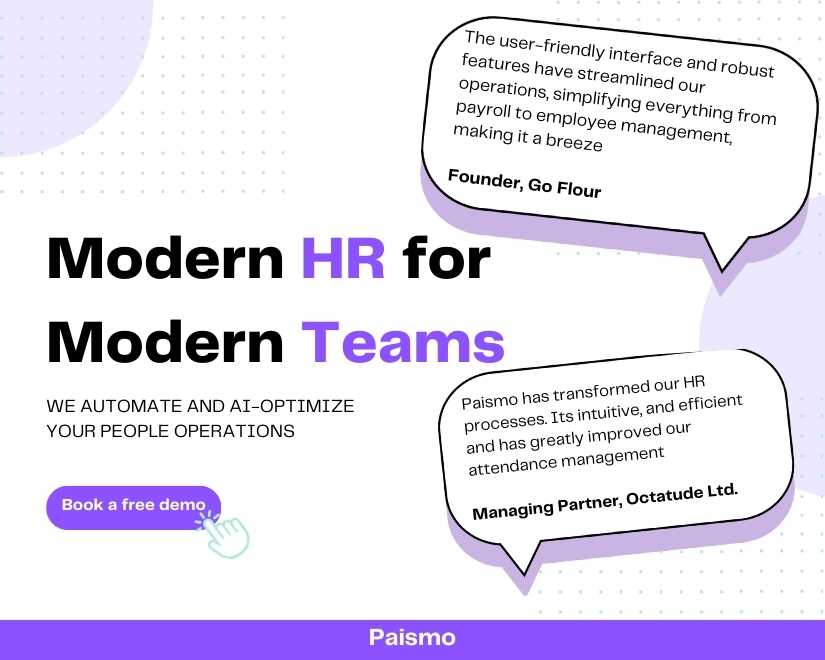The Wages Protection System (WPS UAE) is a government initiative designed to ensure that employees across the United Arab Emirates receive their salaries on time and in full. This system plays a vital role in upholding the UAE Labour Law and safeguarding the rights of workers in both the private and public sectors.
While WPS UAE is widely discussed, many employees still struggle to fully understand how it works and why it’s important. For businesses operating in the UAE, knowing the ins and outs of this system is equally essential, not just to stay compliant but also to build trust and transparency with their workforce.
What Is WPS UAE?
Introduced in July 2009 through Ministerial Decree No. 788, WPS UAE was established by the Ministry of Human Resources and Emiratisation (MoHRE) in partnership with the Central Bank of the UAE. The initiative was further strengthened by Ministerial Decree No. 739 of 2016, followed by additional clarifications and regulations introduced in 2019.
At its core, WPS UAE is a digital wage transfer system that protects employees’ salaries. It requires employers to upload salary details to a secure database managed by MoHRE and the Central Bank. This data is then verified to ensure all payments are accurate, lawful, and on time.
Why Is WPS UAE Important?
The system was created to prevent unethical employment practices such as delayed salary payments, underpayment, or the use of unauthorized payment methods. By enforcing transparency, WPS UAE promotes a healthier employer-employee relationship and builds confidence in the country’s labour market.

Ultimately, the Wages Protection System UAE ensures that every worker receives fair and timely compensation, a key step in maintaining the UAE’s commitment to a just and efficient employment ecosystem.
What Are the Benefits of WPS UAE?
The Wages Protection System (WPS UAE) offers several advantages for both employers and employees, helping create a more transparent and reliable payroll environment across the country.
For employees, WPS UAE ensures that salaries are paid accurately and on time, as required by the UAE Labour Law. This reduces the risk of payment delays, underpayments, or disputes between staff and management. By guaranteeing fair and timely compensation, the system strengthens employee confidence and promotes trust in the workplace.
Employers, on the other hand, benefit from the WPS UAE by having a structured and compliant payroll process. Since all salary transactions are recorded and verified through the system, businesses can avoid legal issues and maintain a clean record with the Ministry of Human Resources and Emiratisation (MoHRE). Additionally, WPS serves as legal proof of payment, offering protection to employers in case of disputes.
In short, WPS UAE supports a balanced relationship between companies and their employees, ensuring transparency, legal compliance, and a smooth payroll experience for all.
How to Register for WPS UAE
If you’re an employer operating in the United Arab Emirates, complying with the Wages Protection System (WPS UAE) is mandatory. This system not only ensures that employees are paid fairly and on time but also helps businesses maintain transparency and compliance with UAE Labour Law.
Before you can register for WPS UAE, there are a few important requirements every employer must meet:
- Corporate Bank Account: The employer must hold an active corporate bank account registered in the UAE. This account will be used for processing all salary payments through the WPS.
- Contract with a WPS Agent: Employers must enter into an agreement with an authorized WPS agent. This agent, which could be a bank, exchange house, fintech company, or other licensed financial institution, handles the transfer of wages to employees on behalf of the employer.
- Timely Salary Payments: Salaries must be paid according to the timelines specified in Ministerial Decree No. 788, ensuring employees receive their wages promptly each month.
- Minimum Salary Compliance: Employers are required to pay at least 70% of their workforce (excluding those on unpaid leave) and must transfer a minimum of 75% of total salaries through the WPS system.
- Responsibility for Fees and Charges: Any costs associated with using the WPS, such as fees or service charges, must be covered by the employer. Employees should not bear any of these expenses.
Registering and adhering to WPS UAE not only keeps your organization compliant with MoHRE regulations but also strengthens your company’s credibility as a fair and transparent employer.
Understanding How WPS UAE Works
Once you’ve completed the registration and met all requirements, using the Wages Protection System (WPS UAE) becomes a simple and straightforward process.
Here’s a breakdown of how it works so you know exactly what to expect when managing salary payments through the system.
1. Preparing and Submitting the Salary Information File (SIF)
The Salary Information File (SIF) is a key document in the WPS UAE process. It contains detailed information about both the employer and employees, including salary structure, allowances, deductions, and other relevant payroll data.
Each time your company processes salaries, a new SIF must be prepared and submitted through your authorized WPS agent. The agent will review the file, correct any errors, and ensure it meets all formatting and compliance standards before submission. It’s worth noting that a SIF is only required for regular salary payments, not for bonuses, gratuities, or commissions.
2. Salary Verification by MoHRE and the Central Bank of the UAE
Once the SIF is submitted, the Ministry of Human Resources and Emiratisation (MoHRE) and the Central Bank of the UAE review the file to verify the details. This step ensures the company complies with all WPS UAE regulations, such as paying at least 75% of total wages and compensating a minimum of 70% of employees on time.
3. Issuance of the Payment Order
If the submitted file passes all checks, MoHRE and the Central Bank issue a payment order authorizing the salary disbursement. However, if any errors are found in the SIF, the employer will receive an email notification requesting corrections. This is why it’s crucial to have your WPS agent double-check every file before submission to avoid unnecessary delays.
4. Transferring Salaries to Employee Accounts
After the payment order is approved, your WPS agent, typically a bank or authorized financial institution, transfers the salaries directly to employees’ accounts. Many companies issue WPS payroll cards, which function similarly to debit cards, allowing employees to easily withdraw or use their wages. For smooth processing, it’s best if each employee has an active bank account linked to their payroll card.
By following these simple steps, WPS UAE ensures a transparent and secure salary transfer process, protecting both employers and employees while maintaining compliance with national labour laws.
Become a part of the Paismo community
Paismo is an HR software that can help simplify your HR operations. In today's dynamic economic environment, efficient HR and automated payroll management are no longer a luxury but a necessity. Paismo is a comprehensive solution that transforms traditional HR complexes into streamlined and automated workflows. Paismo and its paired biometric device integration can be used for your business to mark employee attendance and record their timesheets accurately.
Paismo simplifies your tasks with its core HRMS, timesheets, and attendance management, as well as biometric attendance, payroll automation, and leave management system.

Take the first step toward modernizing your HR and payroll processes and explore what Paismo can do for you. Book a demo with our sales team.








